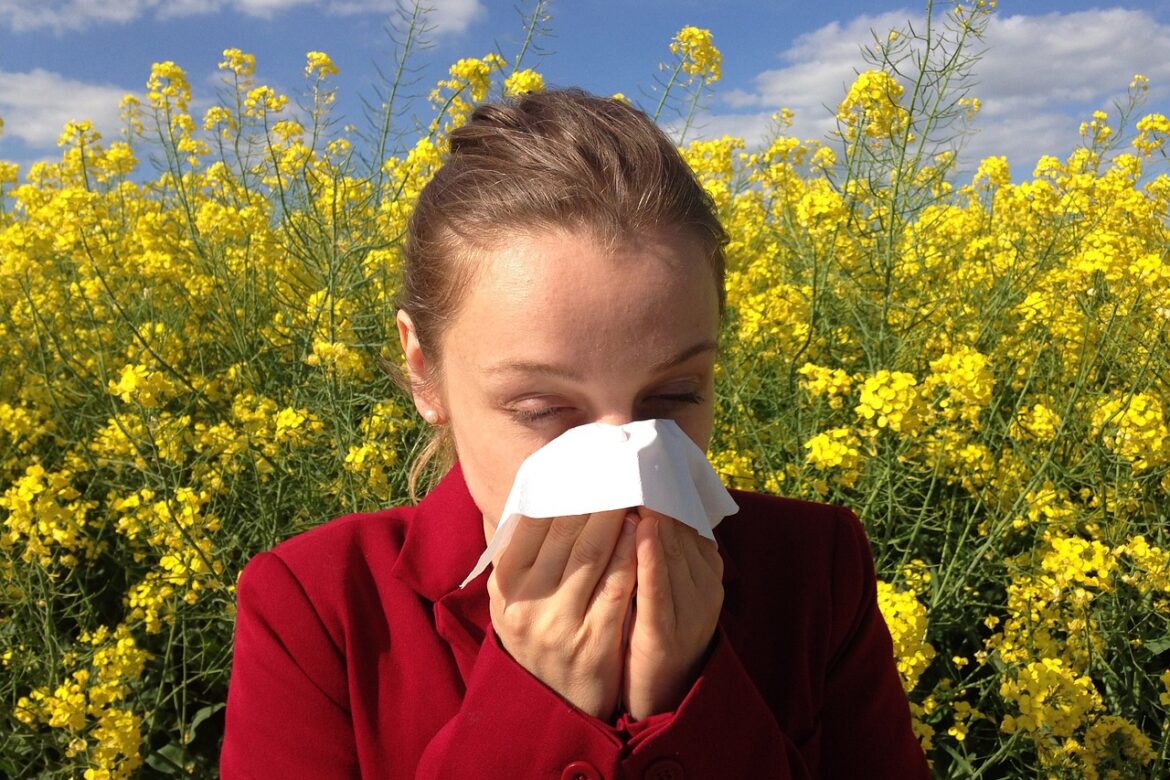By Karen Morris
Spring is a beautiful time of renewal and growth, but for many, it also brings the unwelcome guest of seasonal allergies. As trees, grasses, and flowers begin to bloom, they release pollen into the air, triggering allergic reactions in susceptible individuals.
Let’s explore why spring allergies happen, why some people suffer more than others, and how you can manage them naturally at home.
Why Spring Stirs Up Allergies
Spring is the season of pollination. Plants release tiny grains of pollen into the air, which the wind carries to fertilize other plants. For those with allergies, their immune system mistakenly identifies pollen as a threat, releasing histamines to protect the body. This overreaction results in sneezing, runny nose, itchy eyes, and congestion.
While pollen is the primary culprit, other factors can contribute, including mould spores and changes in air quality as temperatures rise. These airborne allergens can cause severe reactions for some people, while others may experience mild symptoms or none at all.
Why Are Some People’s Allergies Worse?
The severity of allergies can vary due to several factors:
- Genetics: If you have a family history of allergies, you’re more likely to suffer from them.
- Immune System Sensitivity: Some immune systems are more reactive to allergens than others.
- Location & Climate: People living in areas with high pollen counts or windy conditions may be exposed to more allergens.
- Cumulative Exposure: Over time, repeated exposure to allergens can worsen the body’s response.
Natural Ways to Manage Spring Allergies at Home
Thankfully, there are natural ways to manage allergies and reduce symptoms during the spring season:
- Lifestyle Adjustments:
- Keep Windows Closed: To limit pollen exposure, try to keep windows closed during peak pollen times, usually mid-morning to early afternoon.
- Shower After Being Outdoors: Washing off pollen after outdoor activities can prevent it from lingering on your skin and clothing.
- Use an Air Purifier: An air purifier with a HEPA filter can reduce indoor allergens, making your home a more comfortable space.
- Quercetin, NAC and Astragalus capsules: A natural bioflavonoid found in fruits and vegetables, quercetin acts as a natural antihistamine, helping to reduce the body’s allergic response.
Part of an Immune Protocol for healthy immune balance and function. NAC supplementation for six months may support the upper respiratory tract and immune system health. This supplement can support your immune system and reduce inflammation caused by allergens. - Herbal Support:
- Herbs like Baical Skullcap (Scutellaria baicalensis) have anti-inflammatory and antihistamine properties. Baikal Skulcap reduced the allergic response by decreasing levels of histamine and other inflammatory compounds. Skullcap reduced the inflammatory response to allergenic proteins by decreasing IgE antibodies and cytokine levels. The herb also prevented allergy-triggering proteins from being absorbed in the gut.
- Allergy Herba Drops, a blend of herbs traditionally used for decreasing allergic reactions to airborne substances, foods and environmental toxins. The herbs are safe, natural and effective in helping to decrease inflammation and promote respiratory health and a healthy immune system.
Allergy herbal drops are for anyone suffering from allergies, they are also an effective treatment for children with eczema and recurrent ear infections, which are often caused due to allergies. Our allergy herbal drops are natural and safe to use. - Hayfever herbal drops are designed to relieve symptoms for anyone who suffers from hayfever. Symptoms can range from sneezing, blocked sinuses, runny nose, itchy ears, nose, eyes, throat or roof of the mouth, water eyes & headaches. Our liquid herbal hayfever drops are blended with Eyebright, Albizia, Baical Sculcap and Elderflower.
- Stinging Nettle (Urtica dioica) is a traditional natural remedy for allergies, has anti-inflammatory properties and helps reduce symptoms of allergic rhinitis. Nettle is an antihistamine and can therefore be useful for allergies. Daily supplement of nettle leaves may alleviate the allergic symptoms.
4. Nasal Irrigation: Using a natural nasal spray can help flush out pollen and other irritants from your nasal passages. Allan Sutton’s Nasal Spray can help ease the nasal irritation associated with colds and flu, allergic reactions including hay fever; and sinus problems. It contains 16-20ppm of silver which can provide many benefits and can act as an antibiotic that helps stave off nasty bacteria, fungi and viruses.
5. Homeopathy: Homeopathic remedies such as Histaminum can be very effective in managing allergy symptoms. By introducing tiny doses of the substances that cause allergies, homeopathy helps to desensitize the body and reduce the allergic reaction. Homeopathic remedy Histaminum is useful for the relief of allergy symptoms affecting the mucous membranes and skin: sneezing, red, itchy eyes, ears, and nose, restlessness, congestion, itchy skin, and allergic dermatitis.
6. Vitamin C: A study published in the Journal of Ethnopharmacology indicates that high doses of vitamin C reduce histamine levels in the bloodstream. Vitamin C serves as a natural antihistamine, helping to manage allergic symptoms by reducing histamine production. Hesperidin is derived from the pith of unripened lemons. Hesperidin is thought to have beneficial effects on blood vessels. It’s touted as a natural remedy for several health problems, including allergies, hay fever and sinusitis. Buffered Vitamin C with Hesperidin and Minerals is easy to take and gentle on the stomach.
By taking a natural approach to managing allergies, you can enjoy the beauty of spring without the discomfort. Remember, everyone’s body is different, so finding the right combination of lifestyle changes, natural supplements, and herbal remedies is key to getting through allergy season with ease.
And of course, if you need extra support, please do use the contact form on our website or call us on (02) 9555 5117 and let us help you, naturally.


